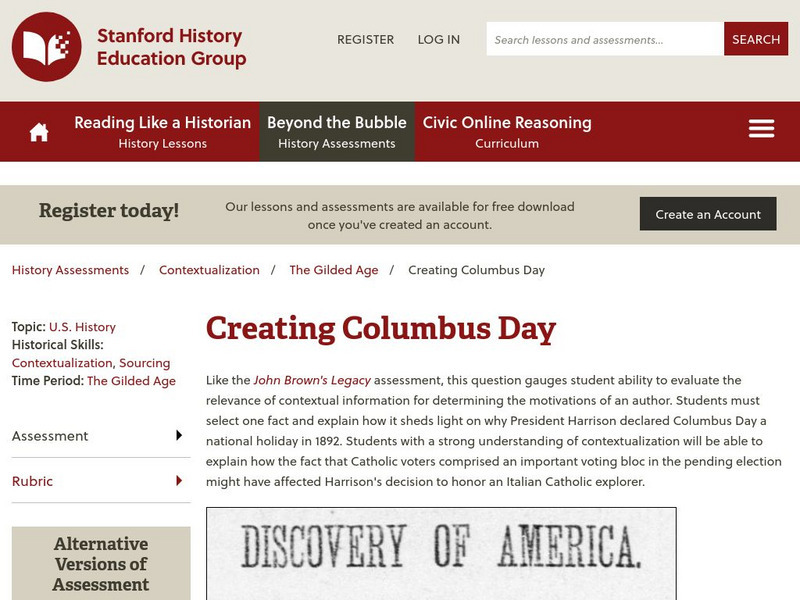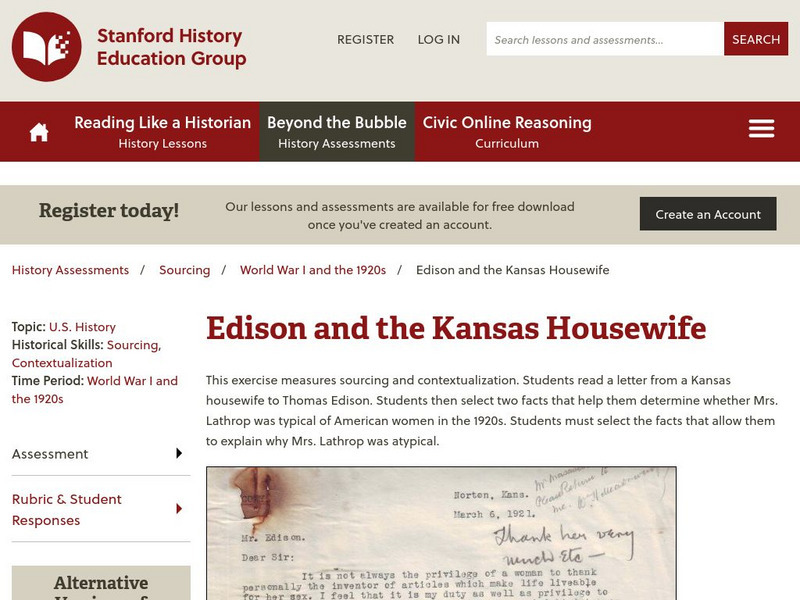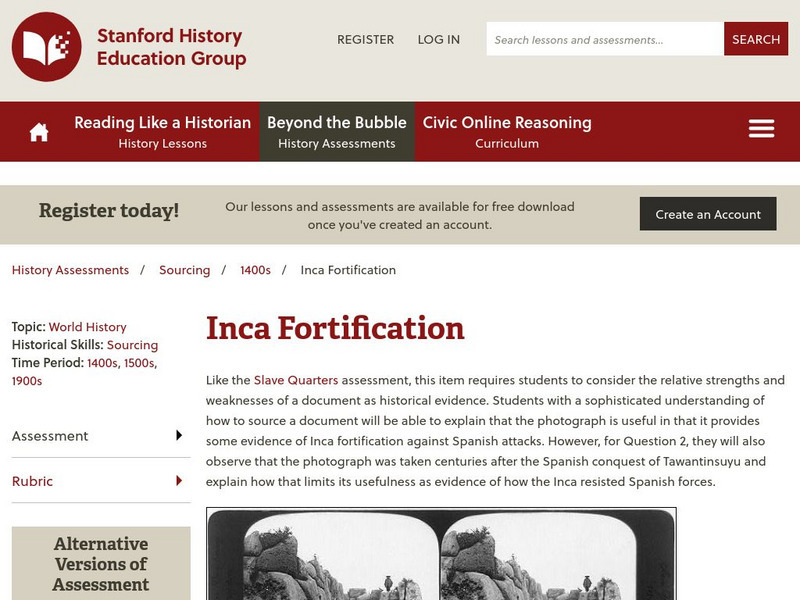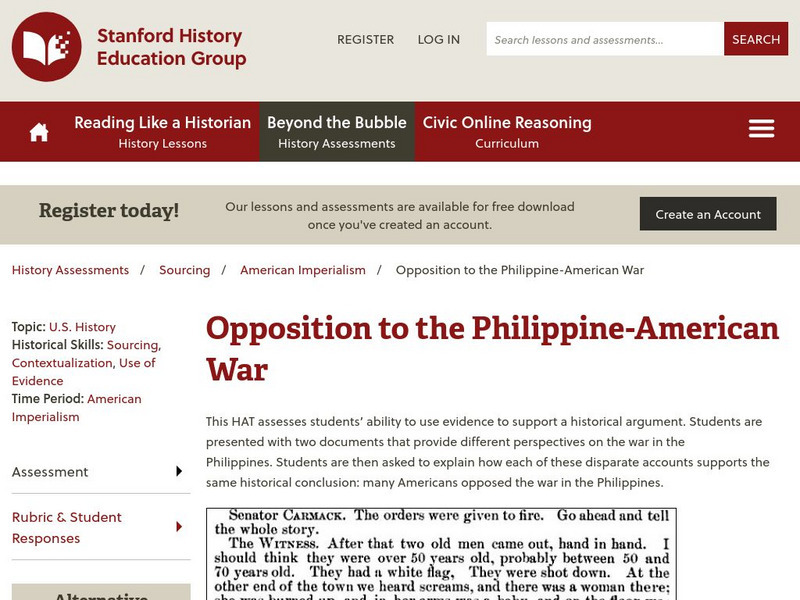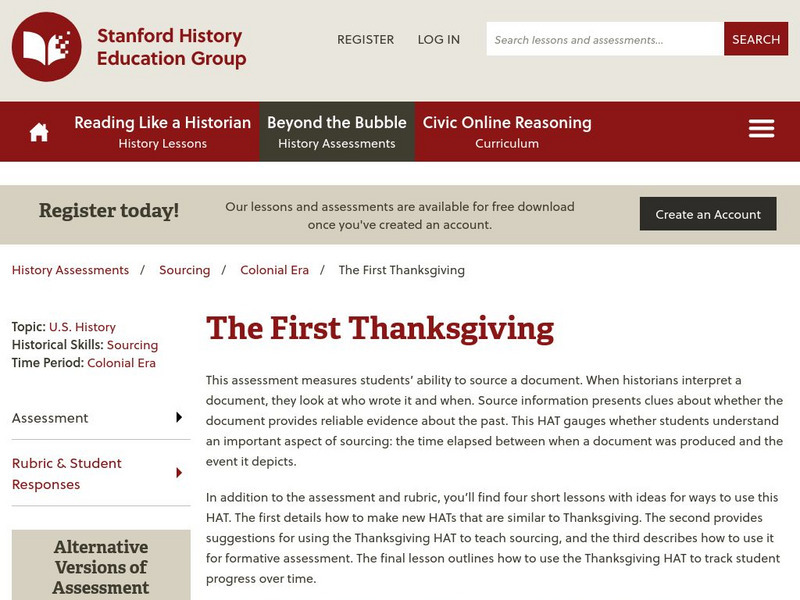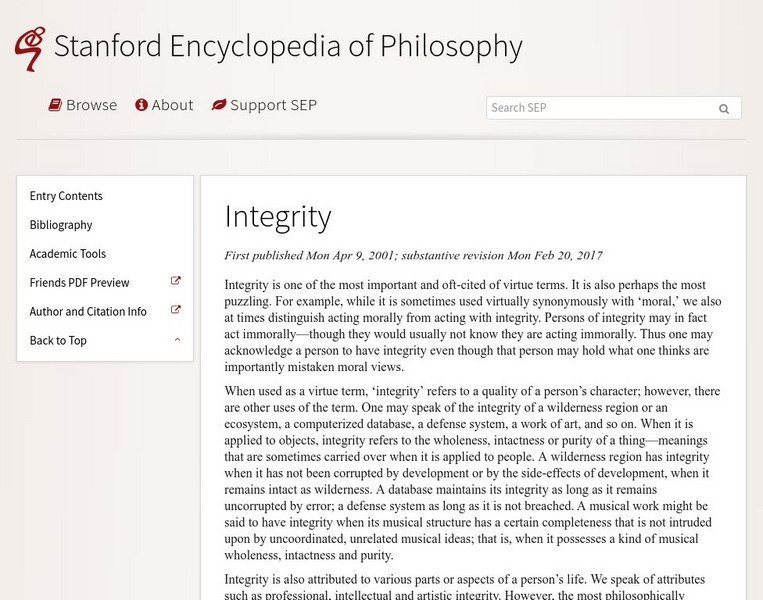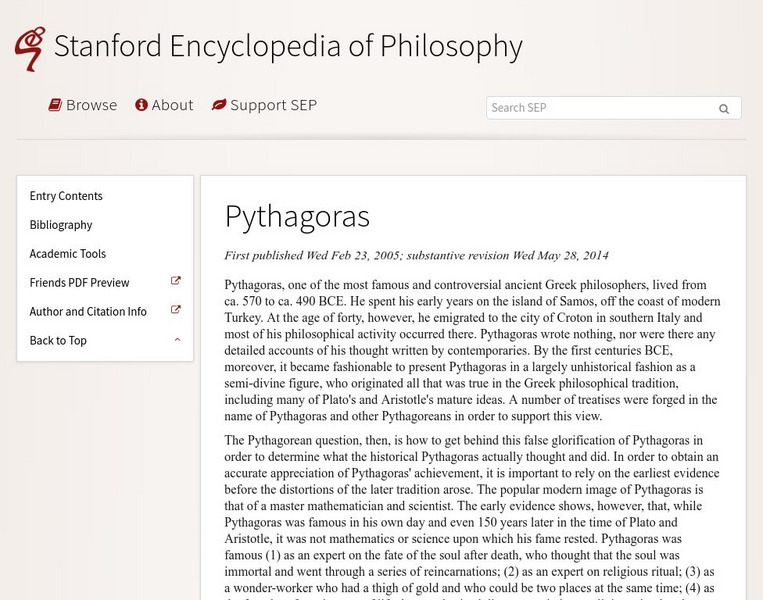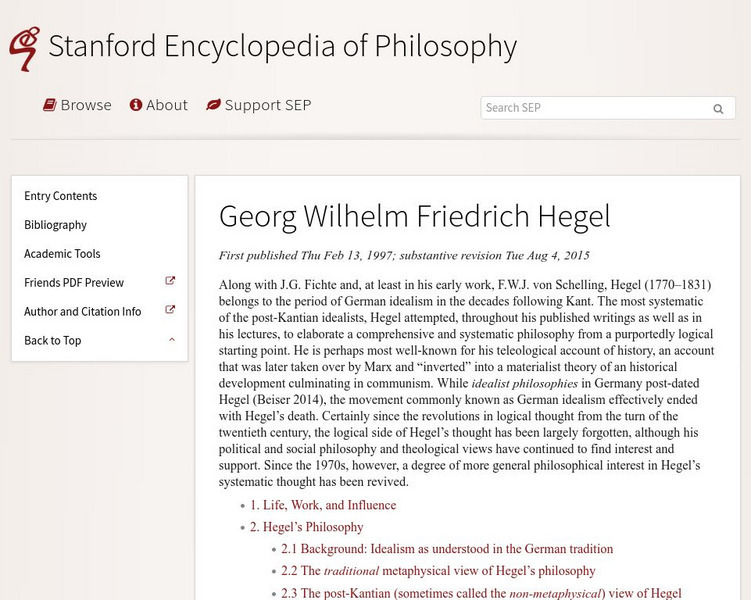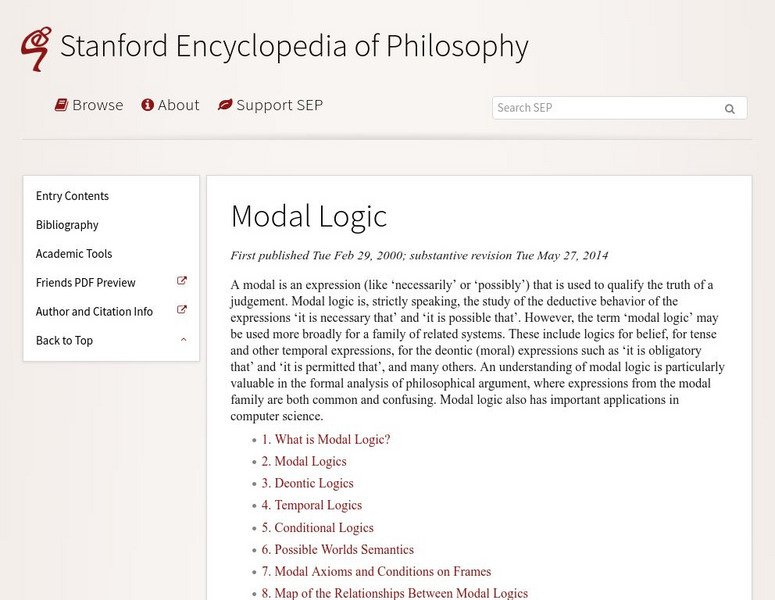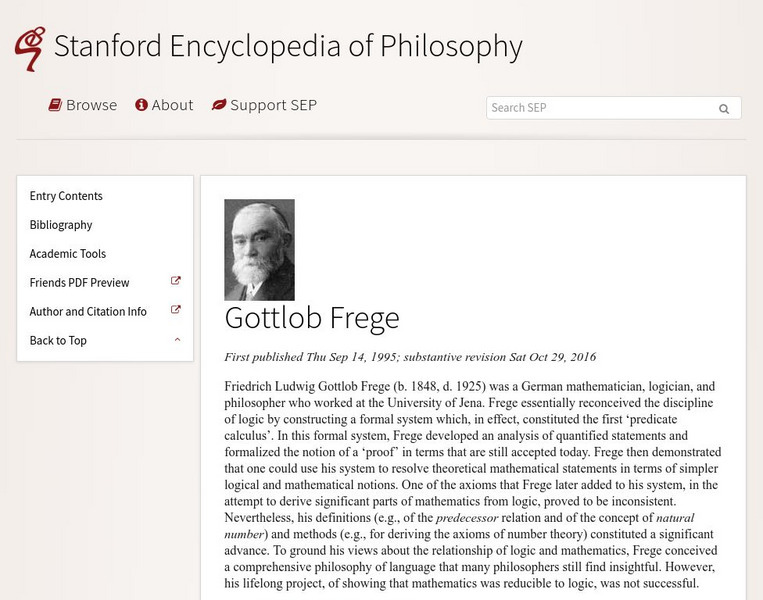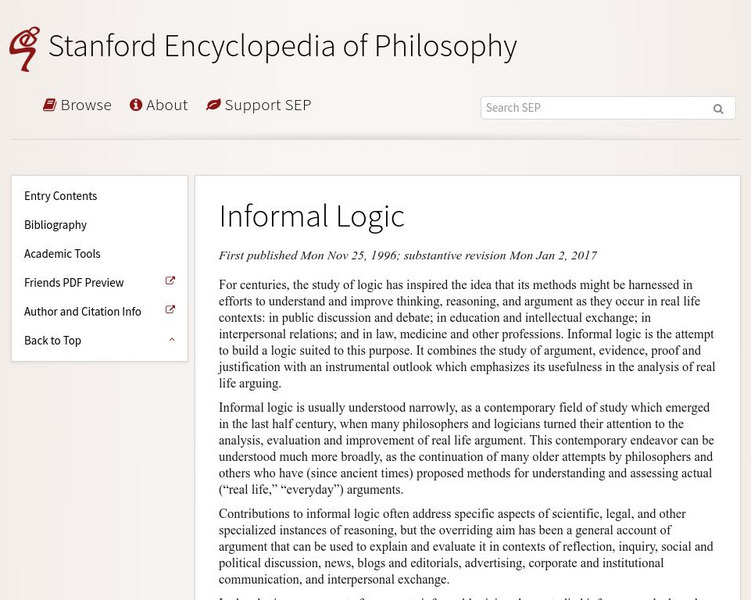Stanford University
Sheg: Document Based History: Reading Like a Historian: Progressivism
[Free Registration/Login Required] Students use primary source documents to investigate central historical questions. This unit explores perspectives on the key issues of the Progressive Era.
Stanford University
Stanford History Education Group: The Middle Passage
[Free Registration/Login Required] Lesson plan on the Middle Passage includes PowerPoint presentation and primary source documents from which students explore original material.
Stanford University
Stanford History Education Group: India Partition
[Free Registration/Login Required] Lesson in which students use primary sources to evaluate the plan to partition India in 1947. Lesson plan, PowerPoint and original documents are included.
Stanford University
Stanford History Education Group: Appeasement
[Free Registration/Login Required] Leaders European democracies, like Britain, utilized the appeasement policy during the years during Hitler's dictatorship prior to World War II. The decision to use the policy are greatly debated still....
Stanford University
Beyond the Bubble: Civil Rights Movement in Context
[Free Registration/Login Required] The two letters presented here are from the archives of the National Association for the Advancement of Colored People (NAACP) and were written over twenty years apart. Students must read the letters...
Stanford University
Beyond the Bubble: Creating Columbus Day
[Free Registration/Login Required] Assessment in which students use a primary source excerpt from President Benjamin Harrison's proclamation of Columbus Day as a national holiday in 1892 and their knowledge of history to answer a given...
Stanford University
Beyond the Bubble: Edison and the Kansas Housewife
[Free Registration/Login Required] Students read a letter from a Mrs. W.C. Lathrop to Thomas Edison thanking him for inventing her electric appliances and making her life easier. They are then presented with some contextual facts, and...
Stanford University
Beyond the Bubble: Inca Fortification
[Free Registration/Login Required] Assessment in which students examine a significant photo taken in Cuzco, Peru, in 1907, and answer the questions provided.
Stanford University
Beyond the Bubble: John Brown's Legacy
[Free Registration/Login Required] Students answer questions about a poster for a play written in 1936 that celebrates the abolitionist John Brown, who tried to start a slave revolt in Harpers Ferry, Virginia, in 1859.
Stanford University
Beyond the Bubble: Morale After Fredericksburg
[Free Registration/Login Required] Students examine a letter from Joseph F. Green, a soldier in the Union Army, to his friend Julia Reynolds on January 2, 1863. In it he describes low morale among Union soldiers after the Battle of...
Stanford University
Beyond the Bubble: Opposition to the Philippine American War
[Free Registration/Login Required] Assesses students' ability to use evidence to support a historical argument. Students are presented with two documents that provide different perspectives on the war in the Philippines. Students are...
Stanford University
Beyond the Bubble: Slave Quarters
[Free Registration/Login Required] Students examine a photograph of former slave quarters in Georgia and answer questions about the living conditions of slaves. They will also observe how the fact that the photograph was taken decades...
Stanford University
Beyond the Bubble: The First Thanksgiving
[Free Registration/Login Required] This history assessment measures students' ability to source a document, in this case a painting of the first Thanksgiving celebration. When historians interpret a document, they look at who wrote it...
Stanford University
Beyond the Bubble: Unions in Paterson, New Jersey
[Free Registration/Login Required] An excerpt from an interview with a textile factory worker named Marianna Costa. In the interview, Costa talks about working conditions at the Arrow Piece Dye Works in Paterson, New Jersey, prior to the...
Stanford University
Stanford University: Integrity
Integrity is outlined in this detailed entry by the Standford Encyclopedia of Philosophy. Integrity is also explained as it relates to a variety of other characteristics. This site is designed for those looking to develop a high level of...
Stanford University
Stanford Encyclopedia of Philosophy: Pythagoras
Encyclopedia article about Pythagoras from the Stanford Encyclopedia of Philosophy that discusses not only his life, but his major contributions as well. Also includes a lengthy bibliography and links to additional information.
Stanford University
Stanford University: Copyright and Fair Use Center
This site contains general information about copyright and fair use as well as specific information about intellectual property and technology.
Stanford University
Stanford Encyclopedia of Philosophy: Maimonides
A highly detailed biography of the famous Jewish philosopher and religious thinker. The article provides a thorough analysis of his religious ideas.
Stanford University
Stanford Encyclopedia of Philosophy: Georg Hegel
This encyclopedia article provides an extensive overview of Hegel's life, work, and influence in philosophy.
Stanford University
Stanford Encyclopedia of Philosophy: Stoicism
A detailed description of the Stoics, covering their philosophy, ethics, logic, and influence.
Stanford University
Stanford Encyclopedia of Philosophy: Modal Logic
Explains modal logic by means of logical notation. Somewhat difficult for a non-specialist to appreciate. However, the introductory section does provide a general definition of "modal logic."
Stanford University
Stanford Encyclopedia of Philosophy: Gottlob Frege
Good summary of Frege's thought. Some sections are more technical, but the explanation of his philosophy of language and other sections are more readable.
Stanford University
Informal Logic/stanford Encyclopedia of Philosophy
Describes the recent movement known as "informal logic." Summarizes its brief history, provides several detailed examples, and explains its relationship to philosophy. Bibliography included.
Stanford University
Stanford Encyclopedia of Philosophy: Behaviorism
Discusses Behaviorism as a philosophy and a field of psychology. Includes information on what behaviorism is, and the types of behaviorism. Also includes links to additional information.





